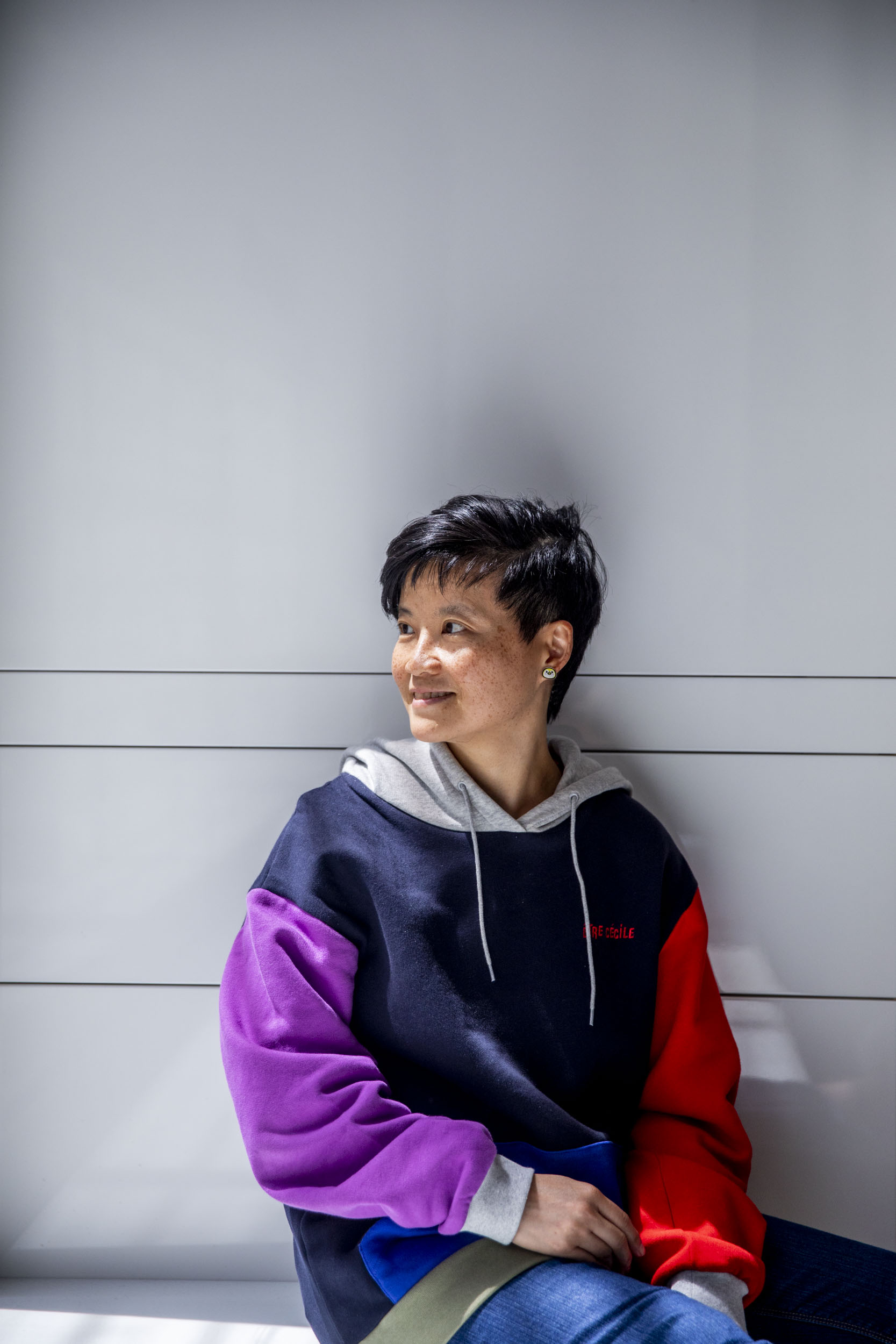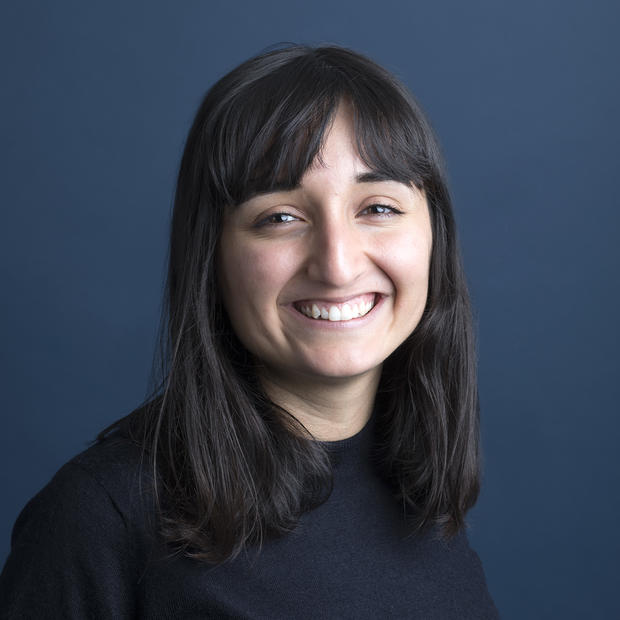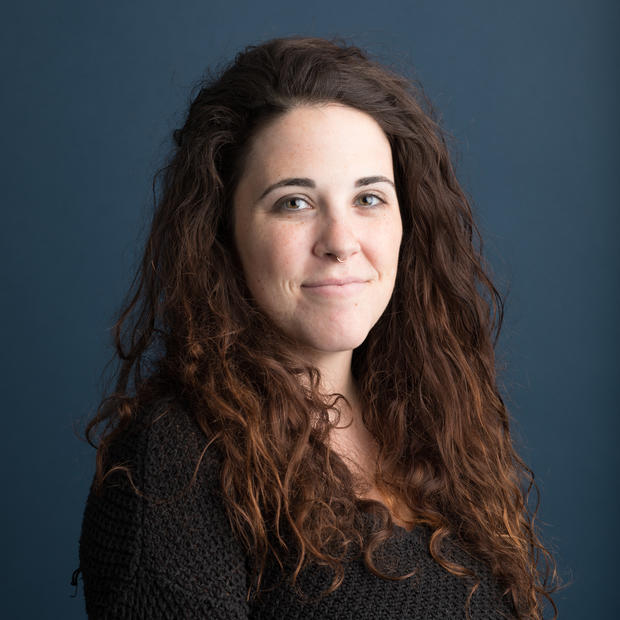This interview has been lightly edited for clarity.
I grew up in the Philippines — actually, my parents are still there. I'm ethnically Chinese, and my father immigrated to the Philippines at a very young age.
Tech was something my father encouraged me to do. He bought me a computer at a very young age to start working with. I think I must have been maybe 11 or 12. And he was always very encouraging in terms of my education.
My parents have always seen computer science as a career that they really encouraged me to pursue. They met in college [and were] both educated here in the U.S. They just believe [in] education. So I feel very fortunate and privileged that way. They encouraged all three of their children to really go into engineering fields. And then all three of us basically came here for college to do that.
When I was in the Philippines, there weren't very many people really into this field yet. We never had any computer science classes in my high school. I had to go somewhere else to take them. And when I went to college, there were very, very few women in computer science. Most of the population was really ... men, basically.
Even if I didn't have computer science classes, I was in advanced math. The girls just disappeared after a while. There would only be one or two of us. And in some ways, I sort of got used to it, but I think in other ways, I always felt like the other, or that I didn't quite fit in.
And that's when I went to MIT. I felt like everybody else had already done years of this. I'm just sitting there, not having been exposed to it as much as other people. I always felt like I didn't pick it up as fast as other people did. I realized eventually that even if I maybe wasn't as fast as some people, in terms of picking things up, by the time I picked it up, I knew it really well. And it didn't really matter.
I got a job at Microsoft in the 1990s, and that's how I came to Seattle. I've been in Seattle for a very long time.
I started in a very, very unusual place in Microsoft. My manager was a woman, her manager was a woman. I think it was probably the only place in the entire company where the entire team was female. And it was in a consumer division. So it was in a division that was building software for home use, consumer use.
While most of the engineers were still men, and most of the leaders were still men, I landed in a chain of women. It was fortunate because I felt like if I didn't end up there, it would have been a lot harder for me to stay in this industry, to be honest. They were excellent role models in terms of their resiliency and their leadership. They gave me a lot of support in terms of being there to listen and help me strategize to know, “How do you influence this person's opinion?” Or “How do you approach this problem?” Or “How do you deal with this very difficult person?”
But some of my mentors, honestly, gave me the advice: “If you want to get anywhere you really just need to kind of suck it up and deal with a lot of the bias and discrimination around you, and work your ass off until you get to a senior position. And then do your thing. And then when you have the power, you can start to change things.”
Some of that, I would never tell anybody today. I understand why I had to do that in the past, but I would not give that advice anymore. It's always a give and take. But I really felt through my career, there were a couple of times that I suppressed what I really felt in order to just keep working toward getting to a better place, where I could control things.
I branched out of that division after a couple of years. I've never seen anything like that [team] ever again. But it prepared me to deal with a lot of the things — not to say I didn't have male managers who were super supportive and sponsored me as well. But I definitely felt that most of the time when I entered a room, I had to prepare to prove myself. I had to make sure I knew where to insert my opinion.
There were quite a few of microaggressions that I chose not to speak up for, or not to call people in because I felt like I would be labeled as emotional or forward or providing resistance too much. I mean, to be honest, there definitely have been times where I've gotten the feedback like, “You resist too much.” Or “You wear your heart on your sleeve.” I feel like the standards put on me to express myself were definitely different than the other men. And I felt like there were quite a few men who got away with yelling and screaming and being way more emotional than I was.
I think I've always had empathy for people who feel like they're different from everybody else in the room. And I think even when I was very junior at Microsoft, I would always gravitate towards making other women, or other people of color, or anybody who's underrepresented, more welcome in the environment, because I felt awkward many times, and I didn't want people joining the team to feel awkward, right?
So I would start there and then, as I grew into leadership positions, I would mentor a lot. I became part of college recruiting. I started being part of the interview circuit. And so my passion for really focusing on diversity definitely started at Microsoft. I started getting more involved in those efforts.
I started running [Ada Developers Academy] probably a year and a half to two years after it began. And it was amazing. It literally was opening doors to people who would never have gotten the chance to enter this industry.
Ada provides software development training for women, trans and nonbinary people in the industry. And it's tuition free. It provides support for those who need even more financial support, too, because it’s a full-time program and you can't work while you do the program. Up to a third of the students needed more support for living expenses and things like that while they were in this program.
The students that were admitted to Ada — many of them didn't have role models. Many didn't have computer science classes, or were first in their generation to ever even think of such a profession, or even going to college. They were just interested in [tech].

We never had problems with people being interested in the program. We had up to 300, 400 applications for every single cohort, which I could only take in 48. So it was a tough choice. But we had people who would apply multiple times and get in. And that was actually quite common, because we only had that many spots.
That just proves to me that there's no lack of interest. I mean, whenever tech companies tell me, "Where am I going to find these people? They're not interested." I'm like, "You're very narrow in your search, obviously. There are all these people that are very interested.”
The most important thing, to be honest, is to have people in your leadership who are more diverse, who are not white men. I would encourage people to go beyond white women. And I feel like that's really powerful, because once the people in leadership become more diverse, then things will start to build out in your organization, right?
I'm glad there's a lot of pressure on this industry now, to show that we are committed to diversity. I feel like a lot of people now look at that and say, “Well, is that the kind of place I want be? How do I feel valued?” [You need to think about] who you're putting in positions of leadership, and who you're giving the power to, because that's really what's going to make a huge difference in terms of hiring, in terms of attaining and, frankly, in terms of the product you build and its appeal to a broader set of people.
I think Ada is an initiative that solves a pipeline problem and entry into the industry. But I still think we have a huge gap at the top, a huge gap in positions of leadership, where it's still very few women, very few women of color, very few non-heteronormative individuals in positions of power. We still have a ways to go.
I'm a senior director of engineering at Nordstrom. I run the commerce services that power our nordstrom.com and our Nordstrom mobile app. And I love the company because I feel like it's really very committed to the full notion of diversity, inclusion and belonging. I love that I get to partner and work with diversity leaders and advocates in Nordstrom that go beyond the tech organization.
I always feel like when women do this work, you get branded as the diversity champion. I struggle with this, and a lot of women in leadership positions struggle with this, because it's like, “Are you going to look at me as a diversity leader or an engineering leader?” But I'm both.
I am really focused on how we diversify the leadership ranks. I feel like I've learned a lot about diversifying pipelines. And there's still a lot of great work there to do, and a lot of organizations that actually that feed into that, not just Ada. But I want to find more solutions to get women in leadership positions. I feel like that's still too hard, and still too many barriers.
The number of women founders that we have, the number of CEOs who are women, is still too small. And so for me, that's a challenge that exists in my own organization, but also in Seattle and in the [tech] industry overall. I feel like that's where it will make the biggest difference, more quickly.



